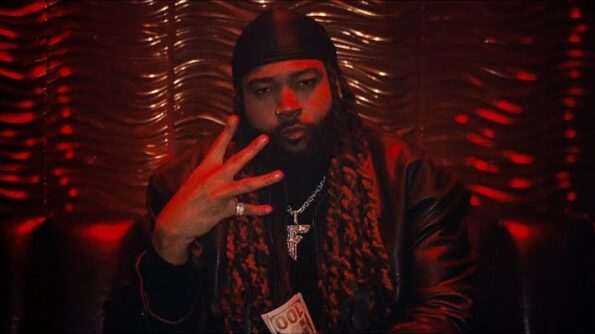When LeAnn Rimes came to national attention at age 13, she embarked on a wildly successful streak, selling millions of albums loaded with songs featuring adult viewpoints, even though she was too young to vote.
Rimes arguably found her adult voice at age 22 with This Woman, an album produced by Dann Huff (Keith Urban, Brantley Gilbert) that lobbed three singles into country radio’s top five, a level she has not attained since.
With “Never Have I Ever,” Danielle Bradbery looks to flip the script on that precedent. She similarly entered the national spotlight as a teen, winning NBC’s The Voice at age 16 in 2013. Her run over the next few years was nothing like Rimes’ — Bradbery’s debut single, “The Heart of Dixie” (No. 12, Country Airplay), is her only top 30 hit so far — though similar to Rimes, she has found her adult voice at age 24 with the Huff-produced “Never Have I Ever.” But Bradbery’s best commercial period is perhaps ahead of her, ready to occur now that her music matches her life experience.
“A couple of years ago,” she concedes, “if I were to try and write a song like this, I don’t think it would be just right.”
Bradbery was ready for a change when she penned “Never Have I Ever” on June 26, 2018, with songwriter Laura Veltz (“Speechless,” “The Bones”) at the home studio of former Evanescence keyboardist David Hodges (“Because of You,” “Miss Me More”). Veltz arrived first and gave Hodges, who had not worked with Bradbery before, a little insight.
“Laura was just saying she was kind of moving in a new direction, trying new things out,” recalls Hodges, “so [we didn’t] feel obliged to make it on acoustic guitar, didn’t feel obliged for it to be anything at all.”
Bradbery had gone through a difficult breakup, and when she arrived, they talked about the negative impact it had had on her life. It evolved into a discussion of what a positive relationship might look like, and Bradbery grew animated about the possibilities. Her hopes were a song in the making, and Veltz had a title, “Never Have I Ever,” that they thought could be adapted to convey the eye-opening kind of love Bradbery desired.
“Obviously, ‘Never Have I Ever’ is this sexual game that you play with your friends when you’re drinking and you’re admitting things, but this was like taking that and turning it on its head and saying, ‘Never have I ever felt this way,’ ” explains Veltz. “I thought that was a pretty dope direction ’cause I love titles that have sort of a misleading energy to them. You think it’s going one way, and it’s going to go the other.”
Unbound by guitar, Hodges used piano to create a musical base that featured just as many minor chords as major triads.
“Producer-writers, I think, are often looking for a way to build a foundation that’s just weirder than what you would normally hear, but not so weird that it confines your options for melodies,” says Hodges. “I grew up listening to Sting a lot, and I think he is the master of using weird time signatures and weird chord progressions and making the melodies on top of it feel natural.”
They accomplished that in the second line of the verse by creating a bittersweet melodic arc that employed an ascendant, Asiatic pentatonic scale. It’s a particularly enticing passage, though it appears only three times in the entire song, teasing the listener in the process.
“That’s the magic math problem for songwriters,” observes Veltz. “Where do you hit it and quit it? It’s that internal clock: What is too much, what is too little, and then what’s that little sweet spot in the middle?”
Similarly, the title only appears once in the chorus, at the very end. But it does get teased at the start of each verse: “Never have I ever been in love,” “Never have I ever felt my heart” and “Never have I ever lost my mind.”
“If it’s not going to be the thing you first hear and last hear in a chorus, then you’re going to have to make sure it’s repeated enough times so it’s obvious what the title is,” explains Veltz.
While most of the song uses ascending melodies and linear passages, they applied a cascading motif to the bridge, ending it with one additional reference to the title. Hodges girded that section with synthesizer arpeggios akin to Eurythmics‘ “Sweet Dreams” or Yaz for the demo, which leaned R&B.
Roughly a year later, a photo on Instagram caught’s Bradbery eye, and she contacted the guy who was in the picture. When she asked him if he had ever been to Nashville, his response was ironic: “Never have I ever.” It was the start of a relationship that matched all the positives she had hoped for when they wrote the song he unknowingly quoted.
“I’m basically singing to y’all exactly what I felt meeting my boyfriend for the first time,” she says.
As a result, Bradbery had some experience with the emotion of “Never Have I Ever” when Huff convened a tracking session at the Castle in suburban Franklin, Tenn. Before it started, he received a call from Big Machine Label Group (BMLG) president/CEO Scott Borchetta, who had met with Bradbery for breakfast that morning and sensed that she had advanced as an artist.
“That’s not a normal thing for him to call me before sessions,” recalls Huff. “He said, ‘I’m really going after [this song],’ which is exciting to hear, to put that kind of premium on what you’re doing.”
Huff assembled a group of musicians to reinterpret the demo with more traditional instruments in a way that was more suitable for country, and Bradbery engaged with the players more comfortably than she had in previous sessions.
At a later date, Bradbery spent a couple days on vocals at Huff’s home studio, where they heightened the bridge on “Never Have I Ever.” Huff coaxed her to find a soaring note that dramatized the production, showed off her tone and used the title to provide a smooth transition to the song’s conclusion. Her performance matched the song’s message in a way that felt like a new plateau.
“When you’re singing about love or heartbreak, until you’ve really experienced that, how do you emotionally connect the dots?” asks Huff rhetorically. “I’ve definitely heard that transition. And you can see it when she talks to you: She’s an adult.”
BMLG Records released “Never Have I Ever” to country radio via PlayMPE on June 16, and it’s listed as New & Active (see page 7). It represents Bradbery at her most vulnerable and most accomplished thus far, a more convincing version of the singer at age 24 than the teen model.
“I was a baby,” she says, comparing the two eras. “I am getting the hang of things now.”
This article first appeared in the weekly Billboard Country Update newsletter. Click here to subscribe for free.



